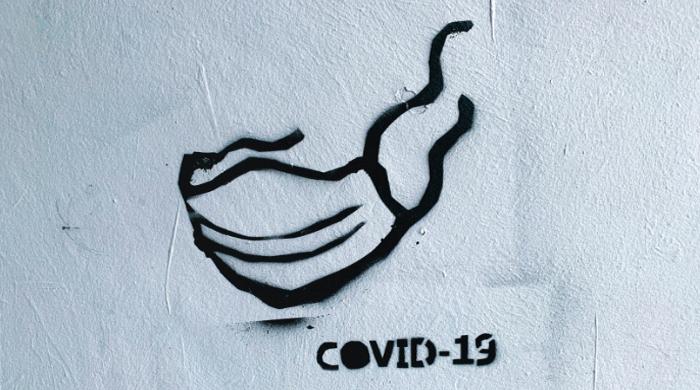COVID-19: ¿La genética es la respuesta?
- Internacionalización para tod@s
- COVID-19: ¿La genética es la respuesta?
GEFACOVID PROYECT WITH THE PARTICIPATION OF YERUN UNIVERSITIES
From Italy, with European, Chinese and Iranian partners, the attempt to answer the questions generated by the SARS-CoV-2 virus: a genetic study at the basis of new diagnostic and therapeutic solutions.
A massive aggregation of 29 subjects between universities (Padova, Brescia, Torino, Trieste, Essex, Essen, Madrid, Munich, Maastricht, Isfahan), Institutions (Istituto Nazionale Malattie Infettive-Spallanzani, Istituto Superiore di Sanità, INSERM Brest, SINH-Shanghai), Foundations (Aviralia, Lorenzini), private companies (ThermoFisher, BBraun, ABBVIE, AlfaSigma, DaVinciDigital Therapeutics, Novartis), Start-ups (Bioscience Genomics, Personal Genomics, Diatheva, TOMA Impact Lab Group, GenDx, PharmGenetix GmdH), aims to find the right answers to what is still unknown about SARS-CoV-2 virus, responsible for over 40 thousand deaths in 192 countries.
The coordinator of the newborn consortium involving many European countries and Iranian and Chinese partners is Giuseppe Novelli, Full Medical Genetics Professor at the University of Rome Tor Vergata.
The GEFACOVID project, recently submitted to EU, which allocated specific funds to fight the current pandemic, will try to answer mainly to the following questions: How does the virus behave? What genetic factors (the acronym GEFA derives precisely from GEnetic FActors) influence the immune response of patients? With more knowledge, more information, more scientific evidence, the challenge to the global pandemic could be tackled with stronger weapons, and hopefully new diagnostic and therapeutic solutions, even customized ones, could be found.
The GEFACOVID will examine in detail the virus’ genetic polymorphisms and pathogenesis mechanism(s) as well as genetic, genomic, metabolomic, epidemiological and clinical data in order to identify biomarkers that confer susceptibility to virus infection and increase the risk of life-threatening complications. “This information – says Professor Giuseppe Novelli – will be then developed to a level that could be exploited for development of therapeutics and diagnostics, which can be used both in the laboratory and in the field, with the ultimate goal to prevent further human losses. Working closely with corporate and clinical partners, we will pursue rapid, clinically actionable solutions, which will facilitate novel preventative approaches and dynamic medical interventions”.
Another major impact of GEFACOVID will include the development of an innovation hub involving the partner academic institutions that could develop into a virtual network for advanced scientific research and control strategies for future outbreaks.
Analysis of GEnetic FActors influencing infection with SARS-Co-V2 and progression of COVID-19 (GEFACOVID)
List of participants:
- Abbvie; Dr. Annalisa Iezzi
- AlfaSigma; Dr. Emilio Merlo Pich
- B. Braun Dortmund; Dr. Jörg Ingo Baumbach
- Bioscience Genomics; Dr. Alessandra Tacconelli
- daVinci Digital Therapeutics; Dr. Giuseppe Recchia
- Diatheva; Prof. Mauro Magnani
- Essen University Hospital; Dr. Katharina Fleischhauer
- Fondazione Aviralia; Prof. Carlo Federico Perno
- Fondazione Giovanni Lorenzini; Prof. Sergio Pecorelli
- Genome Diagnostics B/V; Dr. Maarten Penning
- INMI Lazzaro Spallanzani; Dr. Concetta Castilletti
- Istituto Superiore di Sanità, Dr. Paola Stefanelli
- Maastricht University; Prof. Harald Schmidt
- Novartis; Dr. Gaia Panina
- Personal Genomix; Dr. Paolo Garagnani
- PharmGenetix GmbH; Markus Paulmichl; Prof. Yufang Shi
- Technical University of Munich; Prof. Jan Baumbach
- Termofisher; Dr. Luca Quagliata
- TOMA Impact Lab group; Dr. Francesca Romana Grati
- Universidad Carlos III Madrid; Prof. Juan Romo
- Università degli Studi di Brescia; Prof. Marco Metra
- Università degli Studi di Padova; Prof. Andrea Crisanti
- Università degli Studi di Roma “Tor Vergata”; Prof. Giuseppe Novelli
- Università degli Studi di Trieste; Prof. Paolo Gasparini
- Università di Torino; Prof. Antonio Amoroso
- Université de Bretagne Occidentale; Prof. Claude Férec
- University of Essex; Prof. Efstathios Giotis; Prof. Kamran Ghaedi


